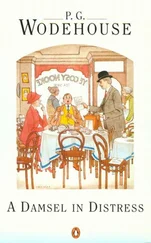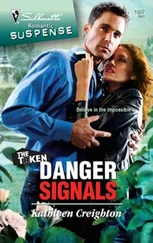The captain spent the morning at a table in the snug, placated every half an hour or so by a shot of ‘Mrs Yapp’s Fortified Tea’. (It would make her rich when she was in her sixties.) He needed fortifying, Mrs Yapp insisted. He’d been ‘stormed-up about the blackie and the Belle ’. A little ‘lively tea’ would settle him and let the anger out and only cost two pennies for a pint. ‘You’re sitting stiff,’ she said. ‘Don’t be so starchy down your back. Better bend than break. There, now.’ She squeezed the tendons in his neck and shoulders until his back relaxed. ‘Anything you need from me, just ring the handbell in the parlour. Or else you’ll find me in my room.’ Was that an invitation to her room? The captain couldn’t tell. She was so brisk and democratic. But her fingers and her tea had done their job. He felt more lively now, though, thanks to Mrs Yapp’s plump generosities, he was stiff and starchy in places other than his neck. He was stormed-up in ways that no man, even agent Howells, could relieve.
The captain had arranged for Walter Howells to visit him that afternoon. That’s why — he needed no excuse — he hadn’t gone with seaman Parkiss to Dry Manston to check on the Belle himself. For the first time in seven years of captaincy he would have to pass a full day without seeing the ship under his command. ‘No choice, no choice,’ he said aloud to himself, and tried to concentrate on his letters and his log. He did his best to calculate the dollar-damage that the storm had done. How would he pay for the repairs? What would they cost? He made a list of urgent tasks: the rounding up of cattle, the purchase of timber and rigging, the disciplining of his men who, given time and liberty, would turn feral. He wrote the names of Whip and Otto at the bottom of his list. And then the name of Aymer Smith. The three of them would be, by now, miles down coast and nothing he could do would get them back. Otto would cost a hundred dollars to replace at A. K. Ellis, the Negro Broker and Auctioneer in Wilmington. More trouble and expense! What kind of man would steal an African in such a blatant way? What kind of man would steal a little bitch like Whip?
‘A bloody fool, that’s who!’ was Walter Howells’s opinion when he arrived for their meeting in the late afternoon. ‘I have the man’s address. You send a bill for the slave and the dog to Hector Smith & Sons. And if he doesn’t pay, then send him something to remember you by.’
‘Like what, Mr Howells?’
‘Like someone to torch the factory. Why not?’ Why not, indeed? Now that the Smiths had no need of Walter Howells’s kelp, their place could burn for all the difference it would make to him. ‘I’d gladly torch the place myself, and him inside of it. It’s little more than common theft, to take a man, no matter all this Wilberforcey bosh.’
‘To steal a dog is worse,’ said Comstock, ‘because a dog cannot express itself. I’d like to get my hands around the fellow’s throat.’
‘Don’t take no risks yourself that you can pay for and forget about.’ Walter Howells leaned forward in his seat, and topped the captain’s drink. He pointed at the list on the table. ‘I’ll take care of all of that, if we can settle on a price and you can provide a promissory note,’ he said. ‘Let’s get the Sabbath on its way, and then tomorrow morning I’ll have them cattle rounded up. The tide is on the up. We’ll see if we can tug your ship free of the bar and put her into Wherrytown. I’ll fix up all the timber that you need, and I’ve the carpenters.’ He worked down the list with a stubby finger, until he reached the last name at the bottom. ‘And as for him. Well, now, you keep your own hands clean. I’ll see he gets a beating. There’s fellows that I know will gladly break a bone or two and only charge a sovereign. I’ll write a letter to a man I have up east. He’s in my debt and has a decent fist. He’ll sort out Aymer Smith. He’ll finish him! We’ll leave the fellow black and blue. He’ll wish he’d never come to Wherrytown. I’ll write that letter straight away, and pay the sovereign out of my own pocket to show my good intentions. What do you say? Shall we play duets?’ He put his hand in Captain Comstock’s. ‘We’re partners, then?’
‘Yes, sir, I think we are.’
‘And if there’s any, what should we call ’em …? candle-ends …? left over when the job is done, then share and share alike is what I say, and mum’s the word.’
Captain Comstock was too far from home to understand the half of what he heard. But this he knew for certain. No trouble and expense would be too much to get the Belle afloat again and sailing home, away from snow and joyless Wherrytown where bad luck seemed to be as common and as unrelenting as the gulls. It didn’t strike him as anything but fitting, as he now looked out beyond his saviour Howells into the lane, that dusk and snow were coming down in a chilling, felting duet of their own, while a horn warned shipping of the fog.
‘There’s snow and fog in these parts, Mr Howells?’
‘Not fog. That’s Preacher Phipps’s chapel horn. It’s evensong, and time for me to get along.’
‘You’re going to evensong, then?’
‘No, Captain Comstock, I am not. I have no business with the chapel. I’m not the prayerful kind.’
‘My men might benefit from getting out of doors, and singing hymns. We’ll let the Wherrytowners see our faces.’ The captain hoped a hymn or two would calm him down before his rage at Aymer Smith transferred to someone innocent. And, then, perhaps a Sabbath night with Mrs Yapp — plump and attentive in her bed — would draw the venom out of him if evensong did not.
The sailors from the Belle weren’t the prayerful kind, either. They weren’t used to worship, except at sea. Their God was weather. But, once the order had arrived from their captain that they must all attend chapel, the younger ones were glad to be at liberty in Wherrytown, sliding and snowballing on the way to evensong.
The town, just like the inn, was made for ambushes and hide and seek. It was a warren, with perplexing levels in which steps up led only to steps down, and parlour windows, at ankle height from outside, were head high from indoors. There weren’t streets or civic places, just a lattice of steep intersecting alleyways and lanes, some no wider than a horse and none with any compass sense or geometric logic. The uneven coastal ridge where it was built determined Wherrytown, and determined, too, that when the sailors’ God — the sun, the snow, the wind — came in from the sea it beat on every door. There were a thousand places for the men to hide and throw their snowballs: behind the sheds and peat stacks in the public lanes, or amongst the hanging nets and timber piles that occupied every spare corner of the town.
Is town the word for Wherrytown? Or village , even? To these Americans, most used to spacious, open, ordered cities, it seemed entirely indiscriminate, a reckless labyrinth of farm outbuildings but without the redeeming focus of a farmhouse. The only building of any imposition was the chapel and the only imposition that the chapel had was its situation on the highest ground. It had views across the sea, and sight of every bedroom in the town. It didn’t have a tower or a bell. That’s why, when it was time to come and pray, Preacher Phipps blew the brass foghorn which had been salvaged, God knows when, from a Dutch wreck. He blew it hard that Sunday night. He feared the snow would keep his congregation home. But overcoats cannot resist the snow, and even as the preacher blew his horn the whitening lanes of Wherrytown were busy with parishioners. Mr Phipps would seldom have again so large and boisterous a congregation. The pilcharders were there, with lengths of net for Preacher Phipps to bless before they put to sea at midnight. And all the Wherrytowners, too, except for Walter Howells. They were sufficiently alerted by the snow, the promised pilchards in the sea, the presence of Americans on land, the rumours of an African at large, to submit themselves to hymns, hard seats and draughts.
Читать дальше












